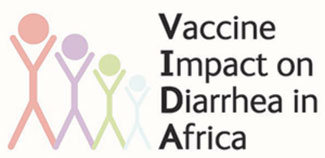 Vaccine Impact on Diarrhea in Africa (VIDA) is a global health study to assess the causes and burden of diarrhea in children under five and determine the effectiveness of rotavirus vaccine at three sites in sub-Saharan Africa: Mali, Kenya, and The Gambia.
Vaccine Impact on Diarrhea in Africa (VIDA) is a global health study to assess the causes and burden of diarrhea in children under five and determine the effectiveness of rotavirus vaccine at three sites in sub-Saharan Africa: Mali, Kenya, and The Gambia.
VIDA is a follow-on to the Global Enteric Multicenter Study (GEMS), the largest and most comprehensive study of diarrheal diseases ever conducted in developing countries. Building on the GEMS infrastructure and methodology, VIDA is a 36-month case-control study of moderate-to-severe diarrhea (MSD) in three prototypic low-income countries.
As rotavirus vaccine uptake increases, VIDA will inform progress on the control of diarrheal diseases. Data, used to develop and prioritize strategies, will ensure efforts are relevant and appropriate to the causes and consequences of future diarrheal diseases.
Study Objectives
- Assess the impact of rotavirus vaccine introduction on the incidence, etiology, and adverse clinical consequences of MSD
- Provide a well-characterized library of stool samples to more precisely define the pathogen-specific diarrheal disease burden
- Determine the effectiveness of a full course of the rotavirus vaccine
Field Sites
Le Centre pour le Développement des Vaccines du Mali (CVD-Mali), Bamako, Mali
Medical Research Center (MRC), Basse, The Gambia
Centers for Disease Control and Prevention (CDC)
Kenya Medical Research Institute (KEMRI)
Centre for Global Health Research (CGHR), Kisumu, Kenya
